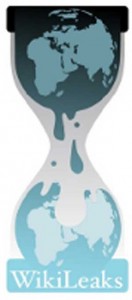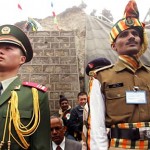We live in the WikiLeaks era when no official document is considered too secret to be put out in the public domain by whistleblowers. It’s only a matter of time before India’s archive of secret files is infiltrated and documents leaked on the Net. It’s silly of the Government to hold on to ‘secret’ papers, many of which are easily accessible in other countries
Ratan Tata recently said that foreign countries could soon begin to see India as a ‘banana republic’. Well, there is one domain where the Government is not really far from this definition: It is the declassification of historical documents. The Indian Government does not seem to have realised that we are living in the era of WikiLeaks.
 During the coming weeks, the now-famous website will post more diplomatic cables. Though most of the material is not interesting for those looking for juicy gossip (such as the lifestyle of Col Muammar Gaddafi and his blond aides), several cables of American Embassies abroad or the State Department have a historical interest and give a fascinating insight into the world of US diplomacy.
During the coming weeks, the now-famous website will post more diplomatic cables. Though most of the material is not interesting for those looking for juicy gossip (such as the lifestyle of Col Muammar Gaddafi and his blond aides), several cables of American Embassies abroad or the State Department have a historical interest and give a fascinating insight into the world of US diplomacy.
Why should the people not be informed of what their Government decides for them and how? In a democracy should the Government not work for the welfare of its citizens who are entitled to know what their ‘elected’ Government does in their name?
Unfortunately in India, all diplomatic and historical documents remain ‘classified’; in other words, out of sight of citizens and scholars or historians.
While WikiLeaks daily provides us with fascinating details of the present AfPak policy of the US and other Western nations, the Government in New Delhi is stuck on its antediluvian position”¦
Of course, if you can find a good sponsor, you can always go spend a couple of months in the UK to consult the India Office records, you will get a fairly good idea how (and who) created the Jammu & Kashmir issue. But the same files (1947-1952) remain secret in India. I remember personally finding hundreds of such files on Jammu & Kashmir in the archives of the Ministry of Foreign Affairs in Paris, while one can only draw a blank in New Delhi.
Take another well-known case: The Henderson Brooks Report of the 1962 fiasco. The Government has broken its own laws to keep it under wraps. Why? Even if the founder of the post-independence dynasty Jawaharlal Nehru may have emerged in a bad light, why put a blanket on the entire corpus of diplomatic reports, letters, correspondences, etc. I have often been told: It is the way the babus function. But are we living in a modern democracy?
While WikiLeaks daily provides us with fascinating details of the present AfPak policy of the US and other Western nations, the Government in New Delhi is stuck on its antediluvian position; India is today one of the few nations which refuses to declassify archival material and this despite the fact that in 2005, the Right to Information Act was passed with fanfare by the Indian Parliament. In fact the law seems to have indirectly helped those who do not want India’s history to be known. Article 8(1)(a) says: “There shall be no obligation to give any citizen, — (a) information, disclosure of which would prejudicially affect the sovereignty and integrity of India, the security, strategic, scientific or economic interests of the State, relation with foreign State or lead to incitement of an offence.”
This paragraph, interpreted by babus and politicians, is enough to make all the files of the Ministry of External Affairs, Defence and Home inaccessible to the public.




